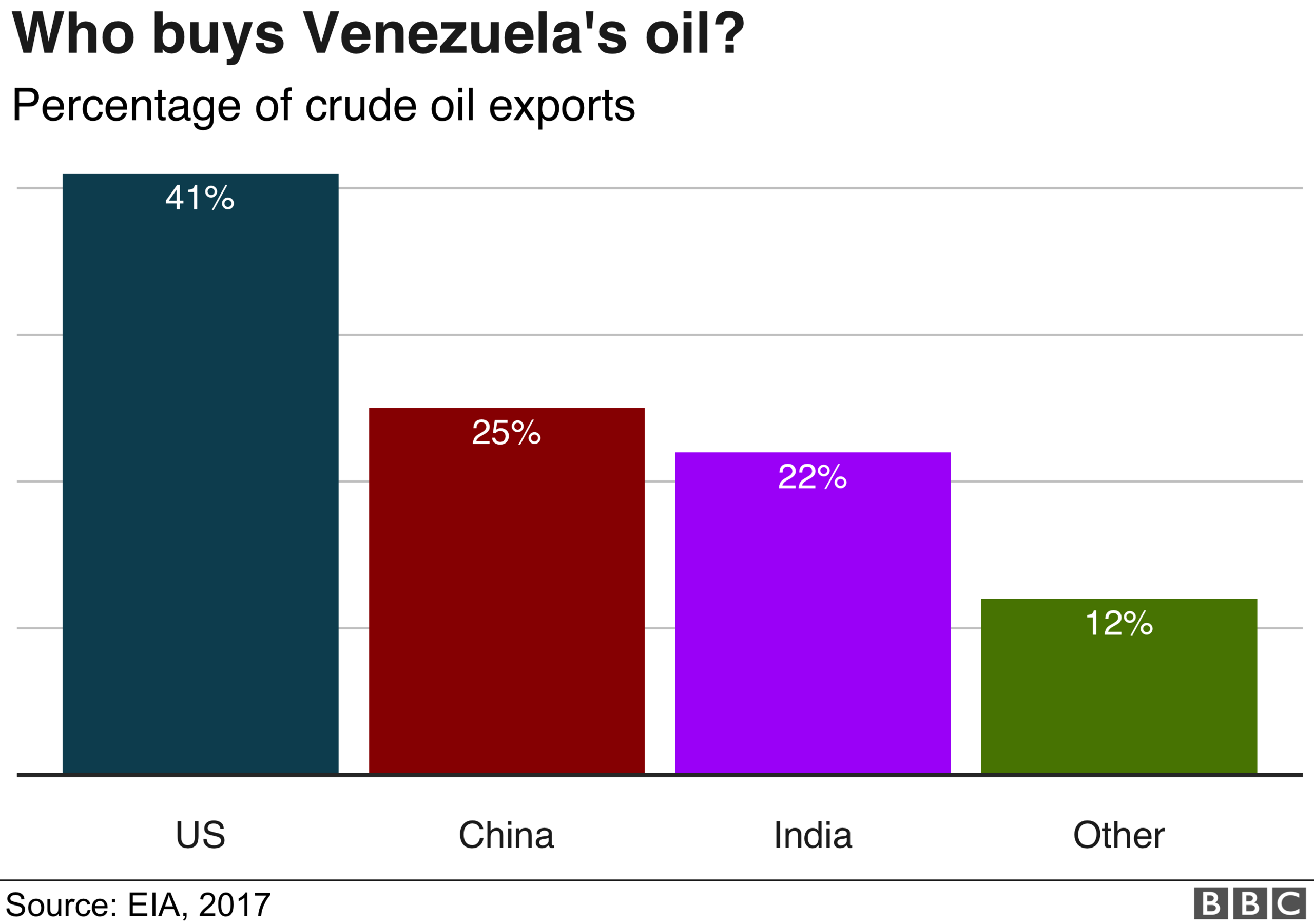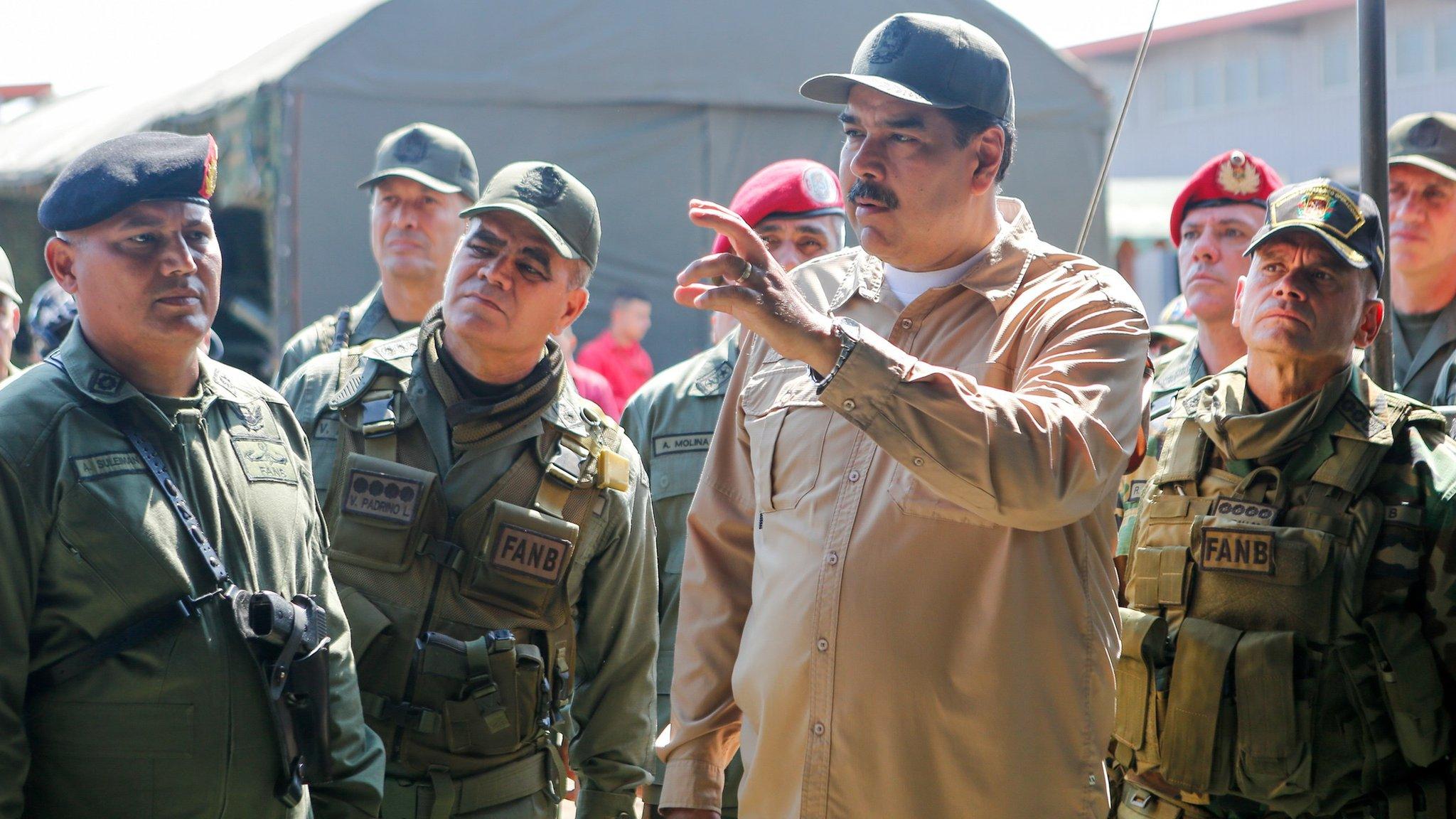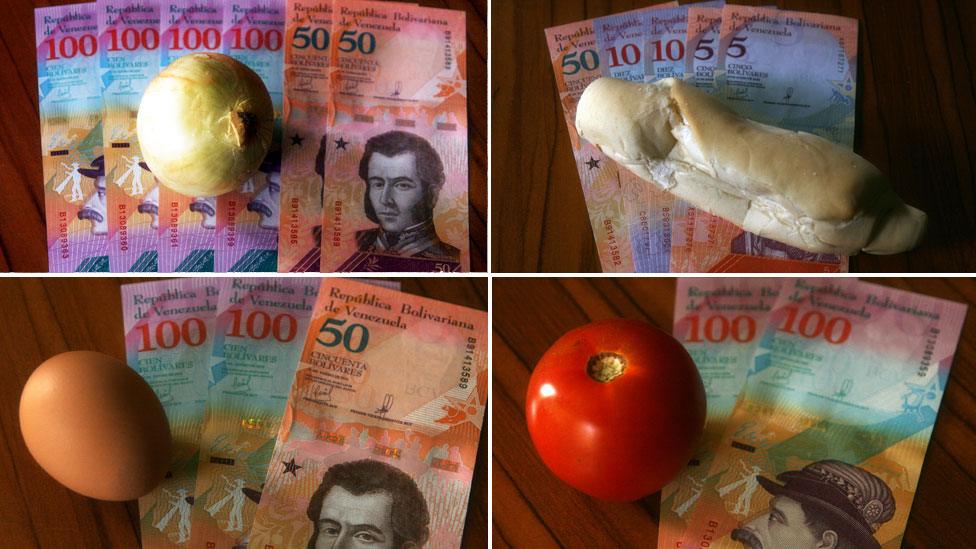Venezuelans 'under Maduro dictatorship' - Juan Guaidó
- Published
Mr Guaidó urged Venezuelans to "choose freedom, democracy and prosperity"
Venezuela's opposition leader has told the BBC that people are living in a "dictatorship", and renewed his calls for fresh elections.
Juan Guaidó declared himself interim president last week.
While the US and others back him, President Nicolás Maduro has major allies too including Russia.
Meanwhile, Attorney General Tarek William Saab has ordered that Mr Guaidó be barred from leaving Venezuela and have his assets frozen.
In a statement on Tuesday, Mr Saab's office said violent incidents and interference from foreign governments suggested "the commission of serious crimes that attack the constitutional order".
At least 40 people are believed to have died and hundreds have been arrested since 21 January, the UN says.
Protests have been growing since Mr Maduro began a second term as president this month. He was elected last year during a controversial vote in which many opposition candidates were barred from running, or jailed.
Venezuela has been struggling with a massive economic crisis. Hyperinflation and shortages of essentials such as food and medicine have forced millions to flee the nation.
Desperate Venezuelan women are selling their hair at the border
What has Mr Guaidó been saying?
Speaking to BBC Mundo in Caracas on Monday, he defended his claim to be interim leader.
Mr Guaidó said the Venezuelan constitution allowed him, as the head of the National Assembly, to take power when the president was considered to be illegitimate.
"My duty is to call for free elections because there is an abuse of power and we live in a dictatorship," Mr Guaidó said.
He added: "In Venezuela, we either accept domination, total oppression and torture... from Maduro's regime, or we choose freedom, democracy and prosperity for our people."
Mr Guaidó said the Maduro administration was "killing young poor people" in the streets.
Who's really in charge in Venezuela? The BBC's Paul Adams explains
He has pledged to act as interim leader to oversee fresh elections. However, his declaration of leadership has divided the international community.
Mr Guaidó has called for further demonstrations this week, after tens of thousands came out to protest against Mr Maduro last Wednesday.
How have outside powers responded?
On Monday US National Security Adviser John Bolton announced sanctions against Venezuela's state-owned oil firm PDVSA to ensure that President Maduro could "no longer loot the assets of the Venezuelan people".
He also hinted at possible military action, reiterating that "all options are on the table".
Mr Bolton appeared at a news briefing with a notepad containing the words "5,000 troops to Colombia", which borders Venezuela.
On Tuesday acting US Defence Secretary Patrick Shanahan declined to say whether the Pentagon was considering sending troops. "I haven't discussed that with Secretary Bolton," he told reporters.
Also on Tuesday, the United States said it has handed control of Venezuela's US bank accounts to Mr Guaidó.
Russian Foreign Minister Sergei Lavrov said the sanctions violated "all possible international norms" and "pledged to do everything to support the legitimate government of President Maduro".
In New York, Venezuelan ambassador to the UN Jorge Valero accused the US administration of preparing a "military invasion".


Who supports whom?
Venezuela broke off relations with the US last week in response to its recognition of Mr Guaidó as interim leader and ordered all US diplomats to leave the country.
On Tuesday the state department issued a travel advisory, external urging US nationals not to go to Venezuela because of "civil unrest, poor health infrastructure, and arbitrary arrest and detention of US citizens".
More than 20 countries have followed the US in recognising Mr Guaidó as interim president.
Russia, China and Turkey are among those who have publicly backed Mr Maduro.
On Saturday, several European countries including Spain, Germany, France and the UK said they would recognise Mr Guaidó as president if elections were not called within eight days.
- Published28 January 2019

- Published4 February 2019
